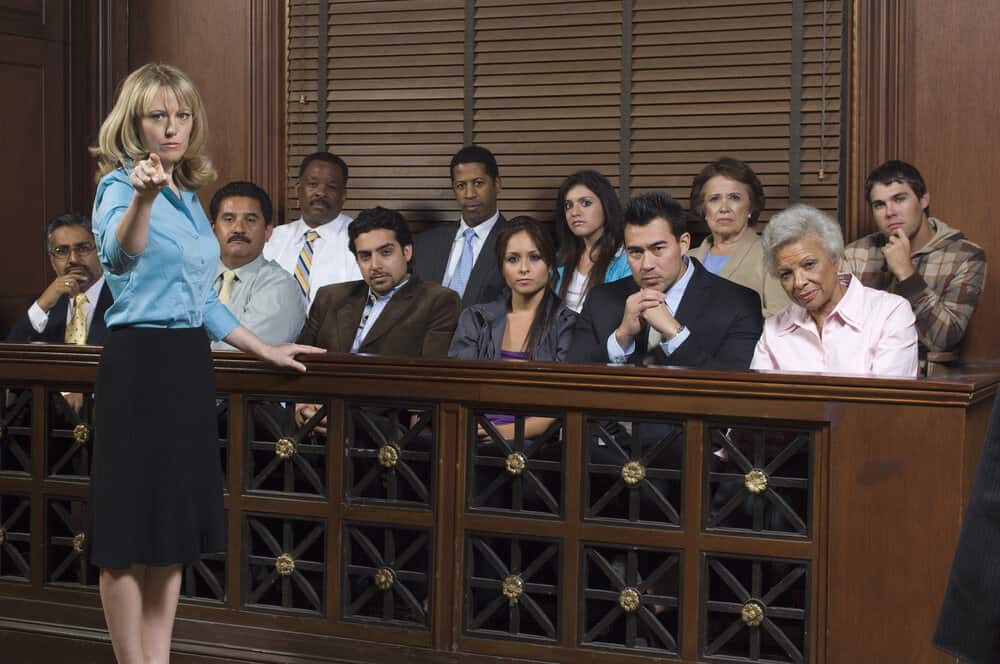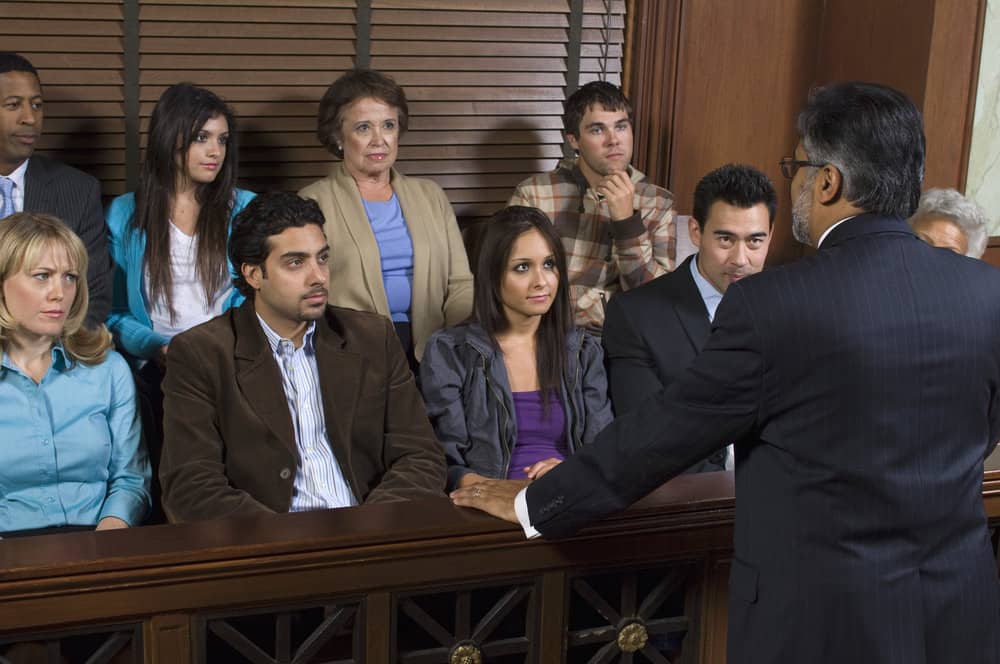Jury consultants play a crucial role in the legal process, assisting attorneys in selecting impartial jurors and providing valuable insights into jurors’ decision-making processes. These professionals possess human behavior, psychology, and communication expertise, enabling them to analyze potential jurors and predict their likelihood of swaying in favor of their client’s case.
As a specialized field, jury consulting emerged in response to complex and high-stakes trials necessitating more advanced juror analysis. Over the years, the techniques employed by jury consultants have evolved, encompassing a wide range of methods, including background research, questionnaires, and mock trials. The benefits of using jury consultants can be significant, as they can help legal teams create strategies that cater to the specific jury pool, ultimately increasing the chances of winning a case.
Key Takeaways
- Jury consultants assist attorneys in selecting impartial jurors and analyzing their decision-making processes.
- They employ various methods such as background research, questionnaires, and mock trials to predict juror behavior.
- With their expertise, jury consultants can provide valuable insights to legal teams, increasing the likelihood of case success.
The Role of Jury Consultants
Jury Selection
Jury consultants play a crucial role in litigation by assisting attorneys with jury selection. They utilize their psychology, sociology, and communication expertise to evaluate potential jurors during voir dire. This evaluation includes analyzing body language, facial expressions, and responses to questions to determine if a juror may favor one side over the other. Jury consultants collaborate with legal teams to develop questions that can help identify biases or preconceived notions that may not be evident initially.
Trial Strategy
In addition to assisting with jury selection, jury consultants contribute significantly to developing trial strategies. They work closely with lawyers to determine the most effective ways to present evidence, craft compelling arguments, and connect with jurors on an emotional level. This can involve determining the optimal sequence for witnesses to testify, identifying arguments that will resonate with jurors, and advising on themes or narratives that can create a positive impression of the defendant.
Jury consultants may also analyze non-verbal cues jurors give during the trial to provide insight into their decision-making process. By understanding the emotional and psychological drivers behind juror reactions, legal teams can tailor their approach to maximize success in the courtroom.
Methods and Techniques
Jury Research
Jury research is a fundamental aspect of the work done by jury consultants. This process involves gathering information about potential jurors and analyzing their attitudes, beliefs, and personal biases that could impact their perceptions of a case. Some common methods for collecting data include questionnaires, polling, and pretrial research. Careful examination of this data helps consultants understand jurors’ psychology and identify individuals who may lean favorably towards their client’s case.
Focus Groups
In addition to traditional research methods, jury consultants often work with focus groups to better understand their cases. Focus groups are groups of individuals that represent a range of perspectives, backgrounds, and attitudes. Consultants present key aspects of their case to these groups, such as themes, arguments, and witnesses, and then observe their reactions. These sessions can help consultants refine messaging and identify potential areas of concern, such as biases that may impact the case. Key elements of a juror’s stance, such as facial expressions and language, can be observed, making focus groups a beneficial tool for case assessment and witness preparation.
Mock Trials
Mock trials are simulated trials that allow jury consultants to evaluate various aspects of a case in a controlled environment. They involve reenacting a case with real-life participants, including judges, attorneys, witnesses, and jurors. Mock trials provide a unique opportunity to test different strategies, such as presentation techniques, witness testimony, and arguments. They also enable consultants to explore potential juror reactions to specific trial elements.
During a mock trial, jury consultants often use tools such as attitude surveys, trial simulations, and shadow juries to study participant responses and identify areas for improvement. By closely monitoring how mock jurors perceive and react to the information presented, consultants can make more informed decisions about the case and ultimately improve the likelihood of a favorable outcome.
The Benefits of Employing Jury Consultants
Appealing to Diverse Jurors
Jury consultants help the legal team understand the diverse perspectives of jurors. They utilize their expertise in jury selection to identify potential bias, socioeconomic background, and other factors influencing jurors’ decision-making. By considering these elements, the client’s attorneys can tailor their arguments to appeal to a broad range of jurors. This approach increases the chances of favorable outcomes in cases involving defense, liability, and intellectual property.
Mitigating Liability and Damages
Employing jury consultants offers valuable insights into the evidence that would be most persuasive when presented during a trial. They are well-versed in finding the most reliable and trustworthy evidence to support their client’s position. The consultants’ extensive knowledge of the legal system contributes to mitigating liability and damages.
Through their understanding of the law, jury consultants can:
- Identify weaknesses in the opposing party’s arguments
- Strategize the best way to present evidence
- Assist in selecting expert witnesses with credibility
- Guide making convincing opening statements and closing arguments
Combined, These factors help the defense reduce the risk of unfavorable decisions and lessen possible financial consequences in a lawsuit.
Using jury consultants allows the legal team to establish trust with the jurors. A well-prepared case and effective communication can foster a sense of reliability and credibility, making jurors more inclined to believe the client’s arguments and evidence.
In conclusion, jury consultants offer numerous benefits to clients, attorneys, and the legal team. By enhancing the capacity to appeal to diverse jurors and mitigating liability and damages, jury consultants play a pivotal role in achieving favorable outcomes in the courtroom.
Choosing a Jury Consultant Company
When looking for a jury consultant company, it’s essential to consider their reputation in the field. Research various companies, like Magna Legal Services and Dr. Hennington, to understand their track record and expertise in handling notable cases. Companies with strong reputations will more likely contribute positively as expert witnesses during a trial.
Companies that serve a wide range of clients, including corporations and individuals, generally offer a broader skill set in handling different cases. Research their trial successes and strategies to gain insight into their approach and the effectiveness of their jury consulting services. The success rate in trials involving these companies can provide a valuable metric for comparison.
When choosing a company, assess their research methodologies and strategies. Effective jury consultants use scientific insights, psychology, and various techniques to analyze and predict the behavior of jurors. The expertise of the company’s consultants—particularly in fields such as social sciences, communication, and psychology—may be an essential factor in determining their capability to deliver the desired outcome.
In summary, when selecting a jury consultant company, one should consider factors such as reputation, the diversity of cases they handle, trial successes, research strategies, and the expertise of their consultants. Choosing a company that can effectively contribute to achieving a favorable outcome in a trial is essential.
The Impact on the Jury System
The introduction of jury consultants has significantly influenced the jury system. These professionals, often hired by the defense or prosecution teams, use their expertise to assemble a jury pool that they believe will result in a favorable outcome for their client.
In this context, the founder or chief consultant plays a critical role in shaping the overall direction of the jury pool. By analyzing prospective jurors’ demographics, opinions, and personal histories, they are able to identify individuals who may be more likely to be sympathetic to their client’s case. This can have a direct impact on the trial’s results.
The use of jury consultants is not without controversy. Some argue that their involvement may undermine the impartiality of the jury system. By creating a jury pool that is skewed toward a specific outcome, it can potentially reduce the fairness of the trial process.
On the other hand, jury consultants provide valuable insights to legal teams that can help inform their trial strategy. With a better understanding of the jurors, the defense and prosecution can tailor their arguments to the preferences and biases of the individuals sitting in the jury box.
In summary, the role of jury consultants in the modern legal system is complex and multifaceted. While their input can lead to a more strategic and targeted approach to trial preparation, it also raises questions about the impartiality of the jury system as a whole. As the use of jury consultants continues to evolve, debates around their impact on the judicial process are sure to persist.
Developing Presentation Skills
Opening Statements
Developing effective presentation skills is essential for jury consultants as they assist with trial preparations. One of the crucial aspects is theme development, shaping a powerful and consistent narrative throughout the trial. It is integral for the opening statements, where the attorney shares an overview of their case. They create a compelling story that resonates with the jurors by working together.
- Theme Development
- Establishing a narrative
- Making an impact
Another important aspect is witness preparation. Jury consultants work with witnesses, ensuring they are well-prepared for their testimonies. The focus lies on clear communication of facts while avoiding inconsistencies. With proper preparation, witnesses can make a stronger impact on the jurors, supporting the overall case strategy.
- Witness Preparation
- Clear communication
- Testimony consistency
Closing Arguments
Jury consultants also play a pivotal role in crafting closing arguments. These summaries should reiterate the themes established in the opening statements and tie everything together. The goal is to leave a lasting impression on jurors and remind them of crucial evidence supporting the argument.
- Reiterating themes
- Tying evidence together
- Lasting impressions
In conclusion, jury consultants are instrumental in developing presentation skills that can significantly impact the outcome of a trial. By focusing on theme development, witness preparation, opening statements, and closing arguments, they help shape persuasive and cohesive cases.
Frequently Asked Questions
Are jury consultants effective?
Jury consultants can be effective in helping attorneys select favorable jurors and develop trial strategies. They use their psychology and human behavior knowledge to assess potential jurors and predict their reactions to evidence and testimony. However, their effectiveness may vary depending on their experience, the complexity of the case, and other factors.
Are they legal?
Yes, jury consultants are legal in most jurisdictions. They operate as part of a legal team, assisting attorneys with jury selection and trial preparation. Their involvement is protected by attorney-client privilege, and their role is to help ensure a fair and impartial jury.
What does research show?
Research on jury consultants’ effectiveness is limited and mixed. Some studies suggest they can improve a legal team’s chances of winning a case, while others find no significant difference. Their impact may depend on the specific consultant’s expertise, the case’s nature, and the opposing counsel’s quality.
What are the functions and criticisms?
Jury consultants perform various functions, including assisting with jury selection, developing trial strategies, and providing guidance on witness preparation. They often use mock trials, focus groups, and statistical analysis techniques to provide data-driven insights.
However, they can face criticism for potentially manipulating the jury system or enabling wealthy clients to gain an unfair advantage. Critics argue that this undermines the principle of a fair and impartial jury.
What is the trial consultant’s role?
Trial consultants, including jury consultants, assist legal teams by guiding various aspects of the trial process. They offer expertise in case presentation, witness preparation, juror evaluation, and other psychological factors that can influence the outcome of a trial.
What are typical jury consultant earnings?
Jury consultant earnings can vary widely depending on factors such as experience, level of education, and geographic location. On average, a jury consultant can earn between $75,000 and $200,000 per year. However, some high-profile cases and experienced consultants may command significantly higher fees.




